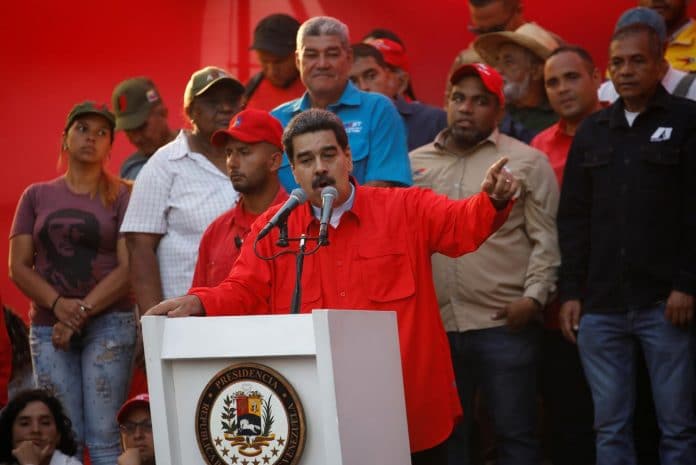Venezuelan opposition supporters gathered for a second day of mass protests against embattled President Nicolas Maduro on Wednesday, less than 24 hours after Guaido’s attempted coup led to violent clashes with pro-government forces.
The leader of the opposition-controlled National Assembly described the latest wave of anti-government demonstrations as an “irreversible process” and promised to continue protesting every day in order to “achieve freedom.”
Pro-government demonstrations took place at the same time, with rival groups both seeking to show strength at May Day rallies.
These protests come at a time when tensions in Venezuela are reaching boiling point, with the South American country in the midst of one of the Western Hemisphere’s worst humanitarian crises as well as being on the US political agenda.
Rafael Hernandez | picture alliance via Getty Images
Showing restraint
Guaido declared himself Venezuela’s rightful interim president in January. Since then the United States have managed to convince more than 50 countries to recognize him, including most Latin American and European countries.
Despite the US and local opposition’s attempts to oust him, Maduro has refused to cede power and, crucially, still has the support of the military.
The protracted political stand-off has thrust the oil-rich, but cash-poor, country into uncharted territory — it now has a semi-international, recognized government, with no control over state functions, running parallel to Maduro’s regime.
Miraflores Palace | Handout via REUTERS
U.S. Secretary of State Mike Pompeo has said military action in Venezuela was “possible” if necessary, but the U.S. would prefer to negotiate a peaceful transition of power.
At the same time, Russia’s Foreign Minister Sergei Lavrov warned President Donald Trump’s administration not to take any “aggressive ” steps.
Meanwhile, the United Nations has called on all sides to show “maximum restraint.” A typical and somewhat useless advice in a situation where things could escalate in a matter of minutes.
On Tuesday, Guaido posted a video showing him alongside handful of men in military uniform saying he had the support of “brave” soldiers in Caracas. That turned out to be a lie as the military still remains loyal to Maduro’s regime.
REUTERS | Carlos Garcia Rawlins
Social, economic and security situation remain complex
Pressure is definitely building on Maduro to step down.
The socialist leader has overseen a long economic meltdown, marked by hyperinflation, mounting U.S. sanctions and collapsing oil production.
As a result, some three million Venezuelans have allegedly fled abroad over the past five years to escape worsening living conditions.
“For citizens and businesses alike, the domestic social, economic and security situation will remain dire, and a continued overspill into neighboring countries, particularly Colombia, is certain,” Eileen Gavin, senior politics analyst at Verisk Maplecroft, said in a research note published Wednesday.
What will come out of the clashes? How will this reflect on Venezuelan people? How will the country resolve its mounting problems, remains to be seen.
